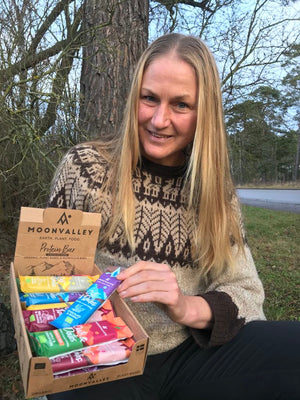Ida Talks Winter Training Conditions
Jan 24, 2025
Hey everyone! I hope that you had a good start of 2025!
Here in Romsdalen we had everything from great snow and skiing conditions to 10 degrees and warm winds with snow-free trails up to 700 meters. I love to have good skiing in the winter, but since I'm doing a trail race already in February, it has actually been good with more running than normally this January. Even though I have done more running this winter, the first run with more vertical downhill running never fails to make it a painful experience for the legs the next couple of days. It usually takes a few weeks to break in the downhill legs and not get sore after.
For uphill training, the treadmill is very efficient. I used to be a runner who never went on the treadmill, but during the winter I feel like the best option for workouts is the treadmill instead of sliding around on ice and snow. Easy runs or long runs, I always run outside since it is way too boring inside for me. Training should satisfy both the body and the soul, and I really like the varied training during the winter time.
It’s amazing how the first snow and good ski day of the year always makes me feel like an excited kid again. Skiing nice snow is just so much fun!

Longer and more training in the winter also means that I have to be good at refilling with energy. During the winter my favorite products for training are our warm Post-Workout drink and the Oats & Dates energy bars.

The naked Protein Bars are a perfect snack after trainings for a quick refill of both protein and carbs. The Chocolate-Dipped Protein Bars or the Nuts & Dates Bars are usually my treat to after lunch coffee if I have nothing sweet at home.
Keep moving, keep happy, and keep the energy high this winter!
/Ida


